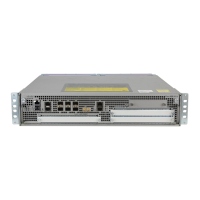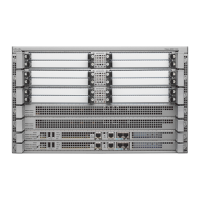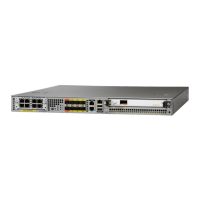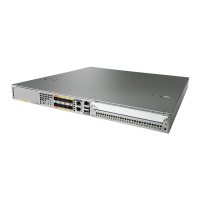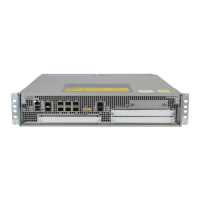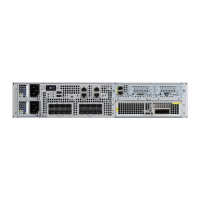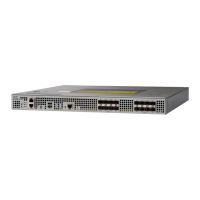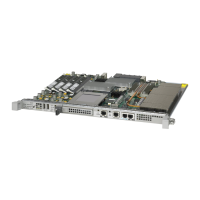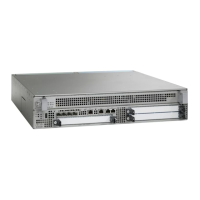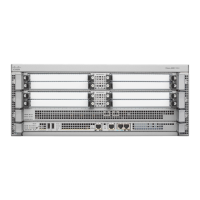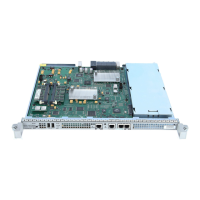Connecting the Console and Auxiliary Port Cables
This section describes how to attach a cable to the Cisco embedded ASR1000-RP1 console or auxiliary ports
on the Cisco ASR 1001 Router. The Cisco ASR 1001 Router uses RJ-45 ports for both the auxiliary port and
console port to attach a console terminal.
Out of Band (OOB) or modem connection in the AUX ILIARY and/ CONSOLE ports, regardless of the
configuration, the connection is not established and calls cannot be setup. This is not supported on all the
Cisco ASR 1000 Series Aggregation Services Routers and all its Cisco IOS XE versions.
Note
To meet Class A emission requirements, shielded cables must be used for the console and auxiliary port
connectors.
Caution
Before you can use the console interface on the router using a terminal or PC, you must perform the following
steps:
SUMMARY STEPS
1.
Before connecting a terminal to the console port, configure the terminal to match the chassis console port
as follows: 9600 baud, 8 data bits, no parity, 1 stop bits (9600 8N1).
2.
Connect to the port using the RJ-45 to DB-9 cable.
3.
After you establish normal router operation, you can disconnect the terminal.
DETAILED STEPS
Step 1
Before connecting a terminal to the console port, configure the terminal to match the chassis console port as follows:
9600 baud, 8 data bits, no parity, 1 stop bits (9600 8N1).
Step 2
Connect to the port using the RJ-45 to DB-9 cable.
For information about how to change the default settings to meet the requirements of your terminal or host, see
Cisco IOS Terminal Services Configuration Guide .
Note
Step 3
After you establish normal router operation, you can disconnect the terminal.
What to Do Next
A connection will not be established when setting up an out-of-band connection or modem connection in
the auxiliary port and the console port.
Note
Cisco ASR 1000 Series Router Hardware Installation Guide
441
Cisco ASR 1001 Router Overview and Installation
Connecting the Console and Auxiliary Port Cables

